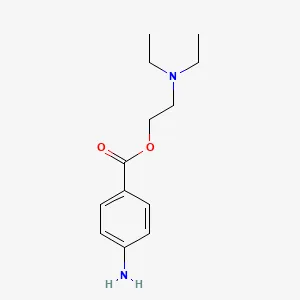
Procaine is primarily classified as a local anesthetic rather than a dietary supplement. It is a synthetic compound used in medical settings to induce loss of sensation in specific areas of the body, commonly during surgical and dental procedures. Known by the brand name Novocain, procaine functions by blocking nerve signals in the area where it is injected, providing effective pain relief for patients undergoing various medical interventions.
Originally developed in the early 20th century, procaine has been widely utilized due to its effectiveness and relatively low toxicity compared to other anesthetics. Its mechanism of action involves inhibiting sodium channels in nerve cells, which prevents the transmission of pain signals to the brain. This ability to provide localized numbness makes procaine invaluable in both outpatient and inpatient settings, where pain management is crucial for patient comfort and procedural success.
While procaine’s primary use is as an injectable anesthetic, it has also been explored for other therapeutic applications. Some alternative medicine practices have investigated procaine for its potential benefits beyond anesthesia, including its use in treating conditions like arthritis, depression, and even as part of anti-aging therapies. However, these uses are not widely accepted in mainstream medicine and often lack robust scientific support.
In terms of safety and regulation, procaine is classified as a prescription medication. This means that it should only be administered under the supervision of qualified healthcare professionals. The potential for side effects, such as allergic reactions or complications from improper administration, necessitates careful handling and monitoring during its use. As a result, procaine is not available over-the-counter or marketed as a dietary supplement.
The distinction between procaine as a medication and dietary supplements is important. Dietary supplements are typically defined as products intended to enhance the diet and may include vitamins, minerals, herbs, amino acids, and other substances. They are generally available without a prescription and are not subject to the same rigorous testing and approval processes as pharmaceutical drugs. In contrast, procaine’s classification as a local anesthetic means it falls under stricter regulatory oversight due to its pharmacological effects and potential risks.
For individuals interested in cognitive enhancement or overall health improvement through supplements, it is essential to explore alternatives that are recognized within the dietary supplement category. There are numerous well-studied supplements that support various aspects of health without the risks associated with prescription medications like procaine.
In conclusion, while procaine serves valuable functions in medical practice as a local anesthetic, it is not classified as a dietary supplement. Its use is confined to clinical settings where it can be administered safely by healthcare professionals. For those seeking dietary supplements for health enhancement or wellness purposes, it is advisable to consider options that are specifically designed for those uses and have established safety profiles. Always consult with healthcare providers before starting any new supplement regimen to ensure safety and appropriateness based on individual health needs.
Need your own dietary supplement manufacturer? Extremely competitive rates. We produce it all. Talk to us.
Comments are closed